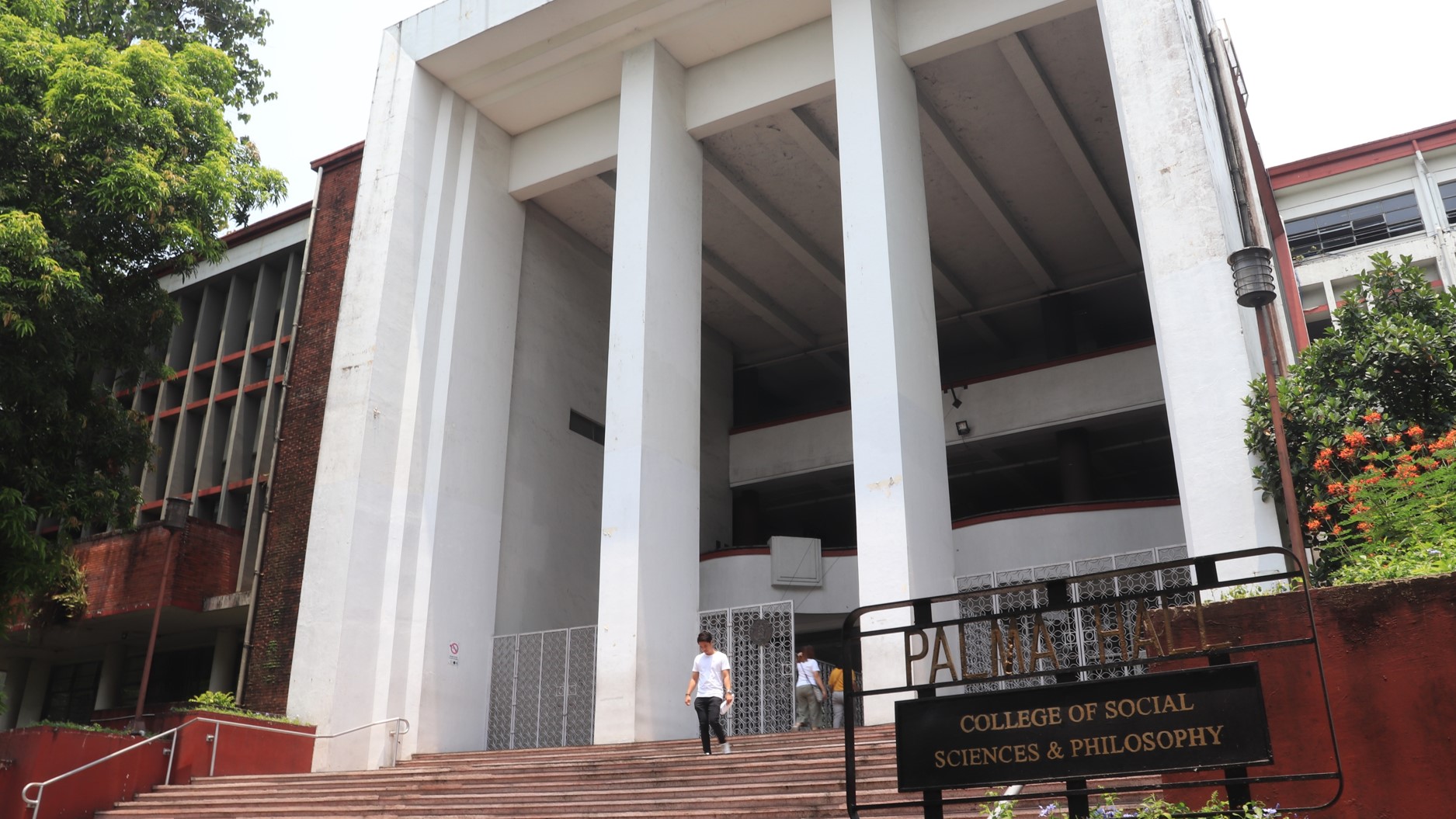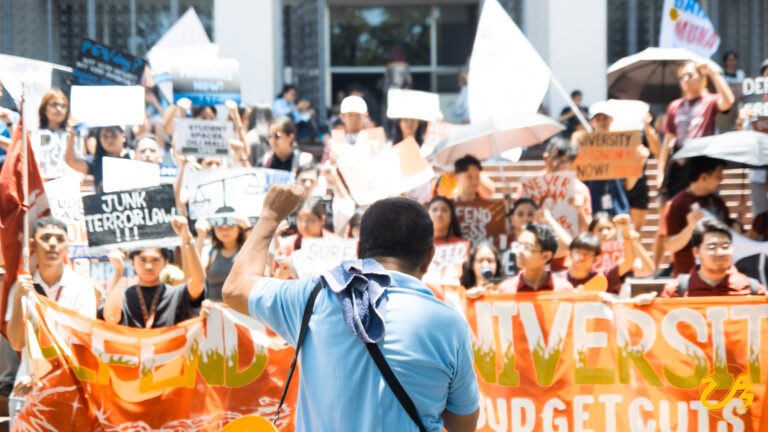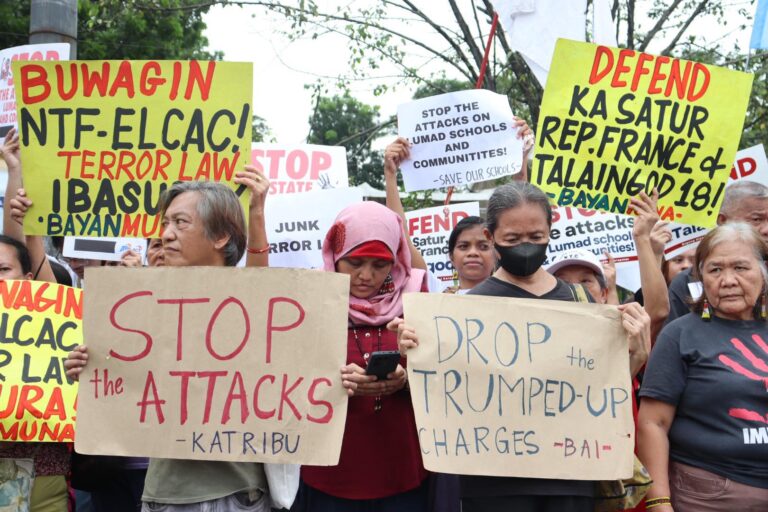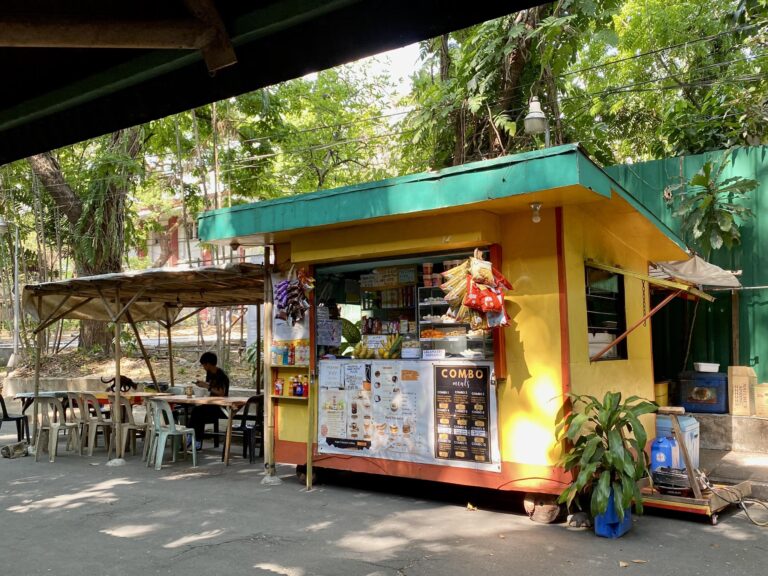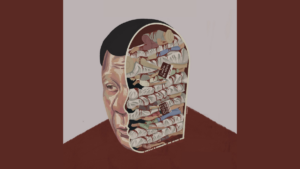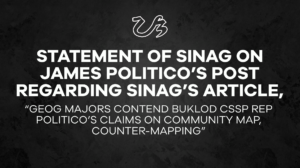
College of Social Sciences and Philosophy (CSSP) Representative to the University Student Council (USC) candidate and head of Geomajie Core Group James Politico of BUKLOD CSSP responds to questions regarding the incumbent BUKLOD-led council’s efforts in helping typhoon Rolly victims in Bicol last year.
Politico asserted that the CSSP Student Council was able to lay out action plans for CSSP majors who were affected by the calamity. He enumerated the project Ahon Oragon, a donation drive initiative, as well as the TulongKAPP, a database for donation drives and relief operations. He indicated their efforts on calling for a CSSP-wide academic ease as well.
Politico highlighted Geomajie Core Group’s efforts in calling for an emergency general assembly (GA) as well as a crowdsourcing map, which presented the most urgent needs of Geography majors at the time, especially those residing in Bicol, ensuring that “no student was left behind.”
Additionally, Politico touted one of their initiatives in BUKLOD’s plans of action, the CSSP Community Map, which he claimed to have originated from the idea of a crowdsourcing map, indicating locations of community pantries and storm signals which may be utilized for gaining data on students who need urgent assistance, they used during the series of typhoons that hit the country from October to November.
However, Politico’s claims on the crowdsourcing community map utilized for Geography majors were contested by those who regarded it as an original initiative by the Geography majors, instead of BUKLOD CSSP or the BUKLOD-led Student Council as claimed, to effectively collate their concerns.
In an interview with SINAG, Mikko Tamura, founder of MapBeks, clarified that he cannot claim the concept of a crowdsourcing map as their own, Politico’s or the BUKLOD-led Council’s own initiative.
“Itinuro ko kay James kung paano gumawa nito,” Tamura noted. (I taught James how to make these.)
However, he still thinks that BUKLOD CSSP or Politico can use the crowdsourcing map.
Likewise, Keenan Lane of the Junior Phlippine Geographical Society – UP Diliman (JPGS-UPD) clarified that they are not entirely against the idea of Politico’s replication of the crowdsourcing map, especially if it is meant for the welfare of the students.
They highlighted that it was mainly for efficiently representing the sentiments of the Geography majors.
For context, Geography majors were then preparing to air out their collective concerns to their department and echo the calls to end the semester. An emergency GA was urged to be convened by Geography majors to consolidate their specific concerns and ensure transparency given the perceived “lack” of consultation and information dissemination between the student body and the core group.
The emergency GA took place after Politico was apparently able to converse with the department head regarding the constituency’s concerns, while also registering their demands — which Lane regarded as uninformed of the concrete conditions of all Geography majors.
In his defense, Politico said adjustments to the remote learning, particularly internet connectivity, network signal, and migration to the province, made it harder for them to do their mandate, aside from the “undermanned” council claims.
The Geographic Society of the University of the Philippines (GSUP) and JPGS – UPD were mobilized to gather all concerns of the Geography major members of both organizations. Geomajie Core Group then focused on the concerns of the unaffiliated Geography majors. Through such, Lane asserted it was a way of firmly establishing a solid stand on their calls to end the semestwr.
Politico earlier raised that a crowdsourcing map was established by Geomajie Core Group; however, the map is said to have been an initiative by Tamura and other Geog majors to effectively and visually represent the consolidation of their concerns. Data were sourced from survey forms given to the constituents inquiring about their conditions.
Tamura contends that the crowdsourcing map has limited uses depending on whether the data is downloadable or accessible. He states that the students’ participation is significant in making the community map, as a tool, “powerful” and more effective.
Both Lane and Tamura reiterate that it is entirely dependent on BUKLOD for which purpose and what initiatives they wish to utilize the use of community maps, especially in addressing the students’ concerns.
“I can not take ownership of the concept of the crowdsourcing map similarly by anyone else who may use it in the future,” Tamura clarified.
However, Lane also asserts that it is not favorable that Politico would take credit for the initiative, especially under a political party (BUKLOD CSSP).
In relation to one of BUKLOD CSSP’s General Plans of Actions (GPOA), the MAPA-Komunidad Tracker was said to be their means of “initiating projects such as counter-mapping, community engagement, and community development plans.”
There have, however, been claims regarding the lack of support from the BUKLOD-led student council on JPGS-UPD’s counter-mapping project, Contour, which has been around for 11 years already. “Contour: Mapping for the People” is an annual project of JPGS-UPD in analyzing structures and immersing within communities through a critical, social lens.
Manifestations regarding the said initiative questioned how BUKLOD will employ the use of counter-mapping in rural areas which have been heavily affected by state-backed attacks and development aggression, considering their history of support for the Comprehensive Agrarian Reform Program Extension with Reforms (CARPER)—oriented towards the interest of large corporations and landlords, causing worse landlessness to peasants.
Geography majors, during an electoral debate of the parties last night, questioned the compatibility of BUKLOD’s counter-mapping initiative and their stance on CARPER citing that a counter-mapping project and integration in Hacienda Luisita revealed farmers view CARPER as a law to intensify militarization, landlessness, dispossession, and land grabbing.
In the previous years, BUKLOD CSSP supported and campaigned for CARPER as part of their call for agrarian justice. However, various farmer groups lambasted CARPER for being an “anti-farmer and pro-landlord” law.

